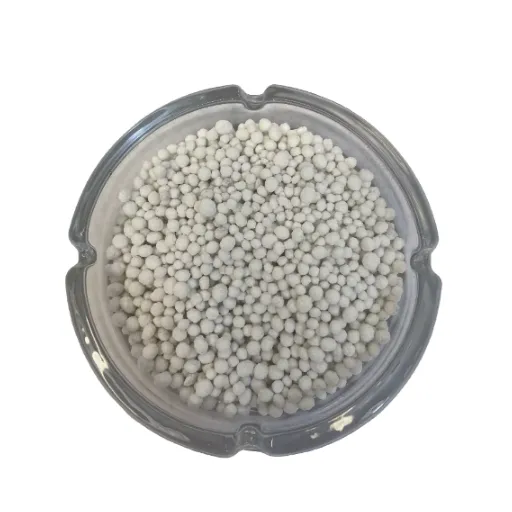In today’s agricultural scenario, fertilizers have turned out to be life-support systems for plants, supporting them with nutrients that are essential for their growth. Among the numerous formulations available is a 12-24-12 fertilizer, which very aptly combines nutrients in such proportions as to achieve growth optimization, enhanced productivity, and soil health improvement. Whether you are an experienced farmer or an amateur home gardener, seeing the mechanism of 12-24-12 fertilizers is one way to guarantee stronger, healthier, and more vibrant plant life.
Understanding 12-24-12 Fertilizers
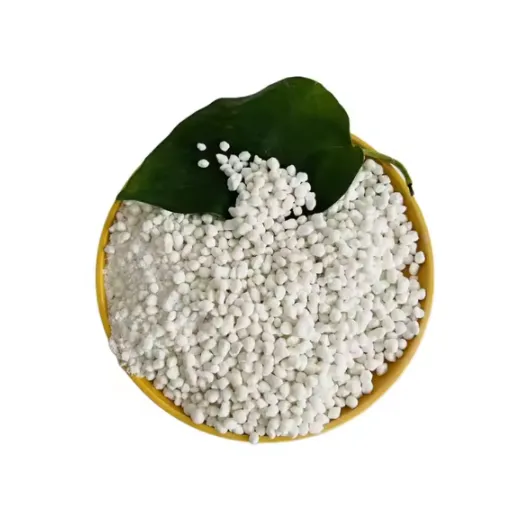
What is 12-24-12 Fertilizer?
It’s a balanced blend of the essentials, while supporting one specific plant growth stage. The numbers “12-24-12” refer to the percentage by weight of N (Nitrogen), P (Phosphorus), and K (Potassium) present in the mixture. These three nutrients are considered essential in plant growth and development, with each having a particular function.
N
Nitrogen (12%)
Encourages vegetative growth and chlorophyll formation in plants. This nitrogen is particularly important during the earliest growth stage as leaves and stems are formed, resulting in lush green foliage and general vigor.
P
Phosphorus (24%)
Makes for 24% of the mix and has the greatest influence on root growth and energy transfer. It is most conducive to the stage of root formation and flowering or fruiting.
K
Potassium (12%)
Helps in the general hardiness of the plant, including resistance toward diseases, drought, and stress, while also increasing quality of fruits and flowers.
Key Point: The combination of NPK with such a ratio is used with 12-24-12 fertilizers at planting, or during root system development with flower and fruit development.
Benefits of Using 12-24-12 Fertilizer
🌱
Enhanced Root Development
Key Benefit: Phosphorus content of 24% in 12-24-12 fertilizer is vital for sturdy root systems.
- Helps in cell division and the elongation of roots
- Creates a strong foundation for nutrient and water consumption
- Studies show up to a 50% increase in root biomass
🌿
Improved Plant Establishment
Key Benefit: Uniform growth from germination to seedling establishment.
- Balanced nitrogen (12%) supports leaf and stem formation
- Phosphorus (24%) facilitates energy transfer for metabolic activities
- Results in uniform and vigorous plant establishment
🛡️
Enhanced Stress Tolerance
Key Benefit: Potassium (12%) improves cellular structure and osmotic regulation.
- Increases drought resistance and disease resistance
- May reduce fungal diseases by up to 40%
- Raises plants’ ability to hold water under stress
📈
Higher Crop Yields
Key Benefit: Optimized conditions for flower, fruit, and grain growth.
- Meets fundamental macronutrient demands of crops
- Increases yield potential by 15-20%
- Results vary depending on crop and soil conditions
⭐
Better Produce Quality
Key Benefit: Enhanced nutritional quality and post-harvest characteristics.
- Crops possess more sugar and greater firmness
- Longer shelf life enhances marketability
- Better suitability for storage and transport
Promoting Plant Growth with 12-24-12 Fertilizer
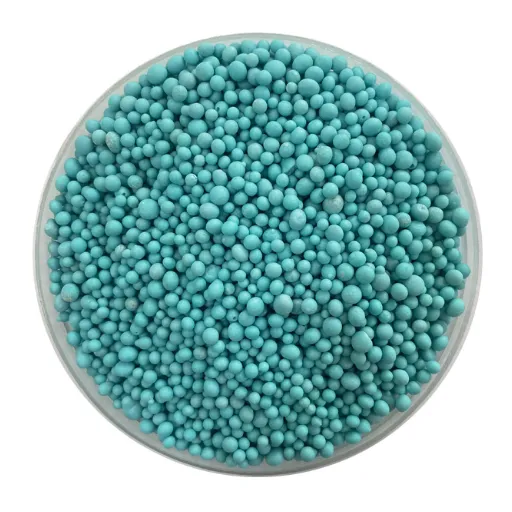
Supporting Healthy Root Development
Root development is strongly encouraged by the right fertilizer formulation (12-24-12) to provide the best, balanced nutrition tailored to plants in their critical period of early growth. The fertilizer has a high phosphorus content of 24%. Phosphorus is directly related to the elongation of roots, enabling a strong network of roots. This nutrient allows the plant to absorb water and other absorbable minerals from the soil, thereby making sure that the plants survive against challenging growing conditions.
Research Finding: Phosphorus-heavy fertilizers like 12-24-12 can help root systems grow deeper and wider, especially in crops such as corn, wheat, and legumes.
Boosting Flowering Performance
The fertilizer formulation of 12-24-12 is meant to be applied during flowering when the plants have increased nutrient demands. The fertilizer contains 12% nitrogen, 24% phosphorus, and 12% potassium in appropriate proportions to be used during root development, flowering, and fruiting stages. More phosphorus will then be utilized during flowering to increase energy transfer and synthesis of essential organic compounds needed for bloom formation.
Supporting Overall Plant Growth
When talking about sustainable plant growth, one needs to consider an integrative approach encompassing precise nutrient management and cultivation techniques. The 12-24-12 fertilizer is the basic step toward this, supplying even amounts of nitrogen, phosphorus, and potassium during critical growing phases.
Key Integration Strategies:
- Soil Conditioning: Adjust pH and increase organic matter
- Organic Carbon: Maintain soil organic carbon above 2% for maximum microbial activity
- Irrigation Management: Use drip irrigation with moisture sensors for precise water delivery
- Environmental Monitoring: Regular soil testing and environmental assessments
Application Guidelines
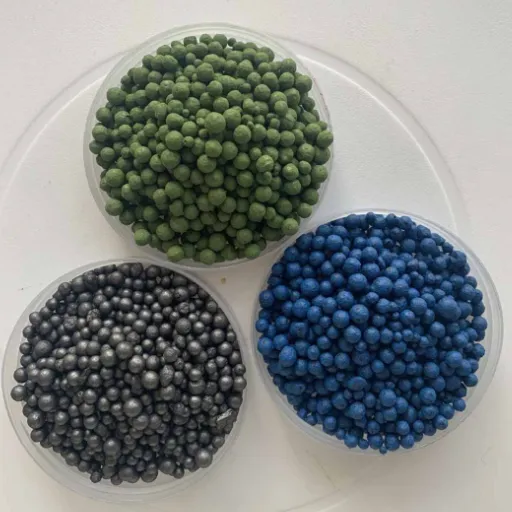
Best Practices for Using 12-24-12 Fertilizer
Essential Application Steps
1
Soil Testing
Determine nutrient deficiencies or pH level to avoid over-fertilization and complement existing soil profile with crop needs.
2
Timing
Apply during early stages of crop development when phosphorus supports root development and nitrogen aids vegetative growth.
3
Application Rate
Follow rates recommended by agronomic research or local agricultural extension services to avoid environmental harm and optimize costs.
4
Placement
Use band or row placement adjacent to seedbed for optimal nutrient absorption with minimal loss through leaching.
5
Irrigation Integration
Coordinate with water management strategies to ensure nutrient dissolution and favorable absorption while preventing waterlogging.
6
Environmental Protection
Avoid application before heavy rainfall and maintain buffer zones near waterways to prevent nutrient runoff.
Timing and Measurement Guidelines
| Application Factor | Recommendation | Research Data |
|---|---|---|
| Seasonal Timing | Apply early in the season at planting for phosphorus root support | Greatest uptake within 30 days after planting |
| Split Applications | Divide applications (e.g., planting + V6 stage for corn) | 15-20% increase in nutrient uptake |
| Soil Temperature | Optimal range: 10°C to 18°C | 30% reduction in effectiveness outside the range |
| Precision Application | Use calibrated VRT (Variable-rate technology) | 20% reduction in fertilizer input with maintained yield |
| Soil Testing Frequency | Test every three years minimum | 1.5x cost-benefit ratio with frequent testing |
Crops and Plants that Benefit from 12-24-12 Fertilizer
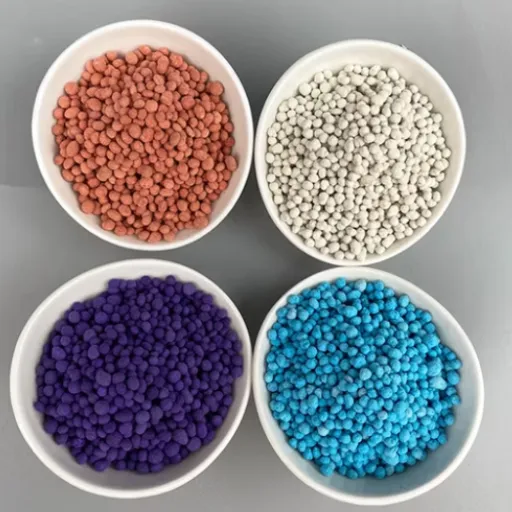
🥕
Vegetables
The 12-24-12 formula is excellent for vegetables requiring significant nutrient input during early growth stages.
Root Vegetables:
- Carrots & Turnips: Enhanced root elongation and uniformity due to phosphorus
- Benefits: Direct support for root growth and development
Leafy Greens:
- Spinach & Lettuce: More vigorous and productive growth
- Benefits: Potassium helps with water uptake and disease resistance
Fruiting Vegetables:
- Tomatoes & Peppers: Higher yields with better fruit quality
- Onions: Improved bulb formation and storage quality
🌸
Flowering Plants
High phosphorus content makes this fertilizer ideal for promoting abundant, vibrant blooms.
| Plant | Improvement |
|---|---|
| Roses | 30% increase in bloom size & frequency |
| Marigolds | 20% increase in flowering |
| Petunias | 25% increase in bloom density |
| Hydrangeas | 35% increase in plant vigor |
| Zinnias | 28% enhancement in bloom duration |
🍎
Fruit-Bearing Trees
Optimal nutrient composition facilitates processes from development to fruit production.
Research Results: 15-20% average fruit yield increase when fertilized on schedules versus irregular application
Key Benefits:
- Root Development: High phosphate content supports strong root systems
- Flowering & Fruit Set: Essential for healthy blooming and pollination
- Fruit Quality: Potassium enhances size, flavor, and pest resistance
- Stress Tolerance: Improved ability to withstand environmental challenges
Best Application Times: Early spring and late summer for optimal results
Maximizing Effectiveness of 12-24-12 Fertilizer
Actionable Tips for Optimal Results
🔬
Soil Testing First
Perform comprehensive soil testing to check nutrient levels and pH before application. This prevents over-fertilization and minimizes environmental impact.
⏰
Perfect Timing
Apply during prime crop development periods – early development and flowering stages when phosphorus content provides maximum benefit.
⚙️
Equipment Calibration
Ensure spreader or irrigation equipment is well-calibrated for uniform application and to avoid nutrient imbalance from uneven distribution.
💧
Irrigation Integration
Apply controlled irrigation with fertilization to dissolve nutrients and prevent leaching. Light, frequent watering helps nutrients reach root zones.
📊
Monitor & Adjust
Constantly observe crop growth and conduct leaf tissue analysis to determine if fertilizer meets nutrient demands. Adjust future applications accordingly.
🔄
Sustainable Practices
Practice crop rotation and allow organic residues to decompose after harvest to support long-term soil fertility and balanced nutrient cycling.
Common Misconceptions about 12-24-12 Fertilizer
❌
“One Size Fits All” Myth
Misconception: 12-24-12 fertilizer is suitable for all crops.
Reality: While the balanced nature allows good root development and nutrient absorption, application must be decided upon according to specific crop nutrient requirements and growth stages. Nitrogen-hungry crops may need supplementary nitrogen, and adjustments based on soil test values are essential.
⚠️
“More is Better” Fallacy
Misconception: Increased fertilization beyond recommended rates brings considerably higher yields.
Reality: Over-application causes nutrient imbalances, excess phosphorus accumulation, and environmental risks, including runoff leading to eutrophication of water bodies. Following soil analysis and application guidelines is crucial.
🩹
“Complete Nutrition” Assumption
Misconception: 12-24-12 fertilizer application ensures optimal crop health on its own.
Reality: While it provides major nutrients, plants also need micronutrients such as zinc, calcium, or magnesium. Secondary nutrients are equally important, and neglecting them limits fertilizer effectiveness even when used correctly.
🌍
“Universal Soil” Myth
Misconception: This fertilizer gives the same results under all soil conditions.
Reality: Soil texture, pH, and organic matter greatly influence fertilizer nutrient utilization. For example, phosphorus availability is reduced in very acidic soils, requiring liming to bring the pH to appropriate levels before fertilizer application.
💡 Key Takeaway
By understanding these misconceptions, farmers can use 12-24-12 fertilizer with precision and efficiency, maximizing crop potential while maintaining environmental responsibility. Proper education and better soil management practices must accompany fertilizer use to achieve maximum potential.
Storage Guidelines for 12-24-12 Fertilizer
🏪 Proper Storage Requirements
Proper storage of 12-24-12 fertilizer is necessary to keep its quality intact and maintain efficacy in the agricultural sector.
Frequently Asked Questions (FAQ)
❓ What is 12-24-12 fertilizer, and what does this ratio mean?
This 12-24-12 indicates that the fertilizer is a manufactured compound with 12 percent nitrogen, 24 percent phosphorus, and 12 percent potassium. This particular formula ensures that a plant gets just enough nutrients during the most critical time for its health and growth, thus ensuring good development.
🍅 How does 12-24-12 fertilizer help plants like tomatoes?
Phosphorus in high amounts in 12-24-12 fertilizer benefits tomato plants by assisting root development and flowering. This fertilizer mix stimulates general vigor in the plant towards healthy yields.
🌍 Can 12-24-12 fertilizer be used for every kind of soil?
Though 12-24-12 fertilizer is applicable for an array of crops and soil types, a soil test can help ascertain its suitability in a particular situation. Depending upon the types of soils, different nutrient formulations may be necessary to yield maximum plant health.
📋 What is the best way to apply 12-24-12 fertilizer?
Following manufacturer guidelines, the 12-24-12 fertilizer may be incorporated into the soil or applied during the early stages of plant development so that the plant can actively receive the nutrients.
🌊 How does 12-24-12 fertilizer affect environmental pollution?
12-24-12 fertilizer nourishes plants when properly applied, while improper application can lead to nutrient runoff and pollution of waterways. It should be applied with caution to minimize adverse environmental impact.
⚖️ How does 12-24-12 compare to other fertilizers?
Compared to other fertilizers, the 12-24-12 formulation has a unique nutrient ratio that serves particularly well during the flowering and fruiting stages. The phosphorus content in the mixture is optimized to give the best development potential to plants.
🛡️ What is the function of potassium in 12-24-12 fertilizer?
Potassium assists in many plant functions, including regulating water and defending against diseases. It promotes healthy growth and keeps plants resilient in the 12-24-12 fertilizer blend.
🔬 Is 12-24-12 fertilizer a compound fertilizer?
Yes, 12-24-12 fertilizer is called a compound fertilizer because it contains more than one nutrient in a formulation, allowing nutrients to be applied together in one application while plants receive balanced nourishment.
References
- Effect of fertilizer application on the yield, protein and fat content, and protein quality of raw and cooked grain of three amaranth species
Interpreting some roles of fertilizer 12-24-12 on the yield and nutritional quality of amaranth grains. - The effect of two PAEC mungbean varieties as influenced by varying levels of complete fertilizer (12-24-12)
This investigates the effect caused by applying 12-24-12 fertilizer on mungbean varieties. - The effect of chemical fertilizer, yeast, and vitamin C treatments on the growth and quality of Mido cucumber
Studies discussing the effect of 12-24-12 fertilizer with other treatments on cucumber growth.



